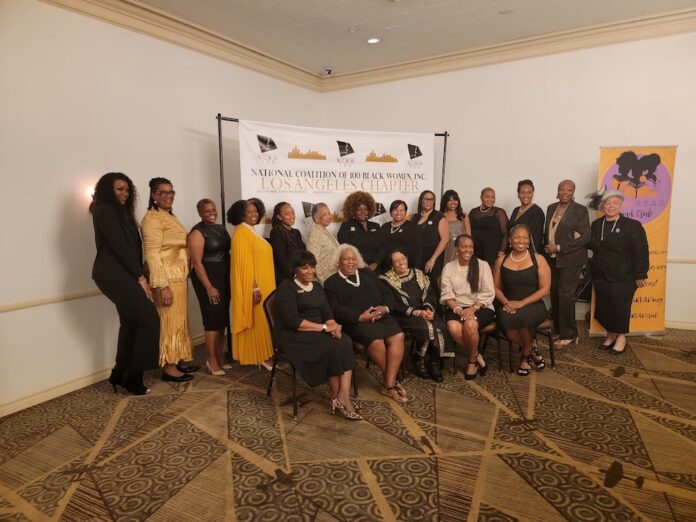Breast cancer is a formidable adversary, affecting women of all backgrounds. However, the battle against this disease is far from uniform. African American women face unique challenges in their fight against breast cancer, as revealed by a comprehensive study conducted by the National Coalition of 100 Black Women, Inc. Los Angeles Chapter. This study, comprised of a survey and an extensive literature review, sheds light on critical issues surrounding breast cancer disparities for the Black community.
The groundbreaking survey conducted by the National Coalition of 100 Black Women Los, Inc. Angeles Chapter brought together a diverse and representative group of respondents to shed light on the breast cancer disparities faced by African American women. In total, over 1,000 African-American women participated in this comprehensive survey, representing a broad spectrum of backgrounds and experiences. The age range of the respondents was carefully selected, focusing on women between the ages of 35 and 45, as this demographic has been identified as particularly vulnerable to breast cancer disparities. By including women from various geographic locations and socioeconomic backgrounds, the survey aimed to provide a comprehensive overview of the challenges and barriers faced by African-American women in their fight against breast cancer.
Approximately 20% of the survey participants reported that they had been diagnosed with breast cancer, highlighting the significant prevalence of this disease within the African-American community. For the remaining respondents who had not been diagnosed, the specter of breast cancer loomed large due to concerns related to family history, genetic factors, or other circumstances. This diverse group of respondents, including both those who had faced a breast cancer diagnosis and those who lived with the fear of it, allowed for a nuanced exploration of the breast cancer landscape among African-American women. The demographic diversity and the range of experiences shared by the survey participants made the study a powerful platform for identifying disparities and advocating for change.
The Harsh Reality
Breast cancer disparities among African-American women are deeply concerning. The study highlighted several alarming trends: late-stage diagnosis and aggressive cancer. A significant number of African American women are diagnosed with breast cancer at a late stage, leading to more aggressive forms of the disease. These late diagnoses result in higher mortality rates among younger African-American women.
Dr. Linda James (past president of the National Coalition of the 100 Black Women, Inc. Los Angeles chapter) is proud of this study because of the way it brings the community together, “It means we have a voice. The community says what it thinks and it’s not just one person saying it…it’s everyone’s experience.”
Dense Breast Tissue and Triple-Negative Genotype: The study found that African American women often have dense breast tissue, which is associated with a triple-negative genotype. This particular type of breast cancer can be more challenging to treat and is often detected later, leading to poorer outcomes.
Underrepresentation in Clinical Trials: African American women are markedly underrepresented in breast cancer clinical trials. This underrepresentation not only hampers progress in understanding the disease but also raises ethical concerns rooted in historical medical injustices.
Limited Access to Advanced Screening: While some advanced screening methods like MRI have been shown to be more sensitive and effective, they are not widely accessible to African American women. Inadequate access to these technologies contributes to disparities in early detection.
The Urgent Need for Action
Addressing breast cancer disparities in African-American women demands immediate action on multiple fronts.
Clinical Trials Inclusivity: Efforts must be made to ensure that clinical trials are inclusive and diverse. African-American women should be actively recruited for breast cancer trials to ensure that treatment strategies are tailored to their specific needs.
Improved Screening: The study underscores the importance of early detection. Accessible and affordable screening methods, including advanced technologies like MRI and 3D mammography, should be made available to African-American women.
Education and Advocacy: Community education and advocacy programs should be launched to increase awareness about breast cancer and the importance of early screening among African-American women. Collaboration with trusted community leaders and organizations is essential in this regard.
Genetic Testing: The study also highlights the importance of genetic testing, especially for African-American women with a family history of breast cancer. This can help identify those at higher risk and guide treatment decisions.
Trust-Building: Healthcare providers must work diligently to rebuild trust within African-American communities, addressing historical grievances and ensuring transparency in medical research and care.
Collaboration: Collaboration is key in the fight against breast cancer disparities. Organizations like the CDC, FDA, NIH, and medical societies should collaborate with community organizations and advocacy groups like the National Coalition of 100 Black Women to develop comprehensive strategies.
The study conducted by the National Coalition of 100 Black Women Los Angeles Chapter serves as a stark reminder of the disparities that persist in breast cancer care for African American women. These disparities are deeply rooted in historical injustices and systemic issues. However, it is not a hopeless situation. With concerted efforts from healthcare professionals, researchers, policymakers, and communities, we can bridge the gap in breast cancer outcomes for African-American women.
The urgency of this issue cannot be overstated. It’s a call for action, a plea for change, and an opportunity to save lives. Breast cancer does not discriminate, and neither should our efforts to combat it. By addressing these disparities head-on, we can move closer to a world where all women, regardless of their background, have equal access to early detection, effective treatments, and, ultimately, better chances of survival.






